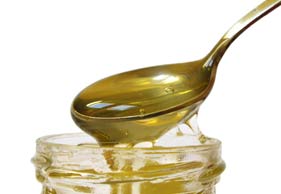You’re probably
not sucking on sugar cubes during the day, but you might be consuming more than your fair share of sugary cereals,
sodas or ice cream. Added sugar is what we call an empty calorie. Sure, with
foods like honey and molasses, you get a few other nutrients, but
calorie-for-calorie, sugar is just carbohydrate. If it’s consumed in excess, it
can actually rob the body of the nutrients required to process it. Excess added
sugar can also send your blood glucose levels sky-high – then insulin shoots up
to clear out the glucose, sending you into a hypoglycaemic state, which can
eventually lead to insulin-resistance.
NON-NUTRITIVE
SWEETENERS
For those who
want to (or must) limit their sugar intake, there are extensive sugar
substitutes on the market, but we’re faced with so many names and terms, so
making the right choice becomes difficult. Sugar substitutes
are loosely considered to be any sweetener that you use instead of regular
table sugar (sucrose). They are anywhere from 30 to 1000 times sweeter than
sugar, and as a result, they have much fewer calories than foods made with
table sugar.
The benefits of artificial sweeteners are:
?
They are non-nutritive — they have
virtually no calories. In contrast, each gram of regular table sugar contains 4
calories.
?
They don’t contribute to tooth decay
and cavities.
?
They may be a good alternative to
sugar if you have diabetes, as they don’t raise blood sugar levels. (However, because
of concerns about how sugar substitutes are labelled and categorised, first check
with your doctor or dietician about using any sugar substitutes.)
POSSIBLE HEALTH CONCERNS
Critics of artificial
sweeteners say that they cause a variety of health problems, including cancer.
That’s largely because of studies dating back to the 1970s that linked
saccharin to bladder cancer in lab rats. As a result, saccharin once carried a
health warning label, but according to the National Cancer Institute and other
health agencies, there’s no sound scientific evidence that any of the
artificial sweeteners approved for use in South Africa cause cancer or other
serious health problems, and the warning label was dropped.
Some people can be sensitive to sweeteners and experience symptoms such
as headaches, bloating or an upset stomach. The only people for whom it is a
medical problem are those with the genetic condition known as phenylketonuria
(PKU), a disorder of amino acid metabolism. They need to keep the levels of
phenylalanine in the blood low to prevent neurological, behavioural and
dermatological problems.
THE BOTTOM
LINE
Sugar in moderation can safely be part of a healthy diet and there is no
evidence that added sugar needs to be removed from one’s diet completely. For
people who are trying to control their weight or blood glucose levels, using
artificial sweeteners can be an effective way to achieve this, but remember
that there is an acceptable daily intake limit worked out per kilogram of body
weight. As a general rule, this limits all non-nutritive sweeteners to less than
8 pills or 4 sachets per day.
Regardless of which
sugar substitute you use, it is best to curb your sweet tooth. Most of us can
no longer perceive the natural sweetness in foods such as almonds or snap peas
because we bombard the sweet receptors of the tongue with high-intensity
sweetness and overwhelm that natural ability. By cutting down on sweets, you
can discover a new dimension to the natural flavours in many of your favourite
foods.


